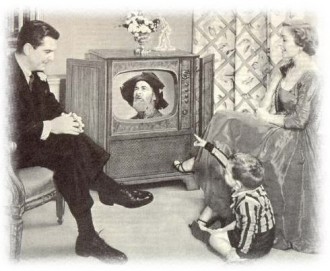Tag: 3G
O2, Vodafone neck and neck in 4G
 Having just launched their own 4G services, O2 and Vodafone are roughly neck and neck in speed and availability, according to a report.
Having just launched their own 4G services, O2 and Vodafone are roughly neck and neck in speed and availability, according to a report.
Conducting over 11,000 tests around central London over five days since the companies launched their 4G services, research company RootMetrics found that O2’s average blended 3G and 4G speed was 16.3 Mbps, compared to 16.2 Mbps from Vodafone. As 4G is not always available, Rootmetrics claims these are the speeds most customers will actually receive.
Having had an enormous head start, EE was given the chance to improve its speec and coverage. At present, its average 3G-4G download speed hit 22.7 Mbps, compared to 17.3 Mbps in April.
At least in central London, both O2 and Vodafone had made their services broadly available. Of the 310 miles within London’s borders, including indoor locations, Vodafone’s 4G was available in 69.4 percent of tests, compared to O2’s 63.9 percent.
For 4G only, O2 won out, reaching average speeds of 23.3 Mbps and a maximum download speed of 65.8 Mbps. Vodafone managed 20.8 Mbps on average and 57.7 Mbps maximum download speed. EE was still ahead with an average of 29.6 Mbps.
RootMetrics CEO Bill Moore said the tests bode well for providers and customers.
“EE has had the best part of a year to cement its place and remains the speed leader, but the early signs for O2 and Vodafone are very positive, especially when it comes to 4G availability,” Moore said. “This is all good news for the consumer as uploading your pictures or downloading content on the move will become quicker as coverage expands and improves”.
Many customers will be waiting for the price to dip. Although 4G in the UK is off to a good start, it is a premium service. Earlier this month, EE boasted it had passed the 1 million customer milestone ahead of schedule. But Ovum’s head of Industry, Communications & Broadband Practice told us with its head start, the company could have done even better. The demand is there, but for early technologies, prioritising getting the adoption rate up with cheaper plans may have put EE even further in the lead.
Posh hotels gouge guests for Wi-Fi
 It is no secret that free Wi-Fi is good for business, so it is available practically everywhere, from pubs and service stations, to public institutions.
It is no secret that free Wi-Fi is good for business, so it is available practically everywhere, from pubs and service stations, to public institutions.
However, it is still not available in most hotels and according to a survey carried out by travel site Gogobot, posh hotels are still charging an arm and a leg for a bit of Wi-Fi.
On the face of it, there is nothing wrong with charging a few pounds for unlimited Wi-Fi, but the survey also confirms another angle – the pricier the hotel, the pricier the Wi-Fi. It is cheeky, to say the least.
Gogobot’s survey of UK hotels revealed that some establishments, such as the Hilton, charge as much as £15 per day. Smaller boutique or independent hotels are cheaper and some offer free Wi-Fi, while others charge up to £5 and £8 per day. It doesn’t sound like too much, but the cost can quickly add up in a matter of days and it is obvious that frequent travellers (or their employers) could end up wasting hundreds of pounds on overpriced Wi-Fi over the course of a single year.
What’s more, the survey found that Wi-Fi access was at times spotty and unreliable, reports Mashable. Quality remains a problem, no matter how much you pay.
“There is no correlation between the amount you pay and the quality you get,” Kelly Lees, general manager in Europe said. She argued that tetherless travel is here to stay and the days of connecting to the internet using Ethernet in hotels are “long gone”.
However, things could be about to change. Lees says Wi-Fi prices are starting to affect hotel ratings. Travellers who believe they were ripped off on Wi-Fi will not give hotels a five-star rating. In addition, the availability of low cost 3G/4G services could make hotel Wi-Fi as obsolete as Ethernet, unless hotels finally realize that they stand to gain more by offering free Wi-Fi rather than making their guests pay through the nose for every byte consumed on business trips.






